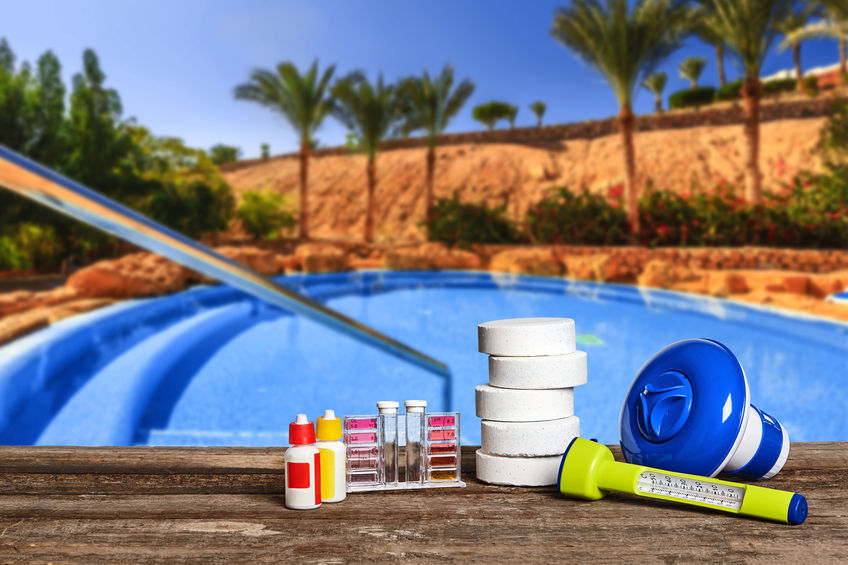Important Pool Maintenance Tips to Maintain Your Water Sparkling Clean
Preserving a pristine pool needs a methodical strategy to water treatment and tidiness, which inevitably adds to both the aesthetic charm and longevity of the pool itself. Trick techniques include routine screening of water chemistry, efficient filtration, and debris monitoring. Adhering to these fundamental techniques not just improves the clarity of your swimming pool water however also safeguards against possible concerns that might intensify right into costly fixings. As we discover these vital upkeep pointers, a much deeper understanding of their significance will disclose exactly how easy activities can result in remarkable results in swimming pool maintenance.
Examination Water Chemistry On A Regular Basis
To guarantee a pleasurable and risk-free swimming experience, consistently testing water chemistry is necessary. Proper water balance not just improves swimmer comfort however likewise protects swimming pool equipment and surfaces. The primary chemical specifications to check include pH, chlorine levels, alkalinity, and calcium solidity.
pH levels need to be kept between 7.2 and 7.8, as this variety decreases skin and eye irritability while maximizing chlorine efficiency. Chlorine degrees need to ideally be between 1-3 parts per million (ppm) to offer appropriate cleanliness without creating unpleasant odors or irritation. Overall alkalinity, which functions as a barrier for pH, ought to be maintained between 80-120 ppm to stabilize water chemistry and prevent variations.

Maintain the Pool Filter Clean
Keeping correct water chemistry is just part of efficient swimming pool treatment; keeping the swimming pool filter tidy is equally vital for ideal efficiency. The swimming pool filter plays a vital role in getting rid of debris, dirt, and pollutants from the water, making certain a satisfying and safe swimming environment. Over time, filters can come to be clogged with bits, which can substantially reduce their performance.

Additionally, monitor the stress scale on your filter system. A stress increase of 8-10 psi above the regular operating array normally indicates that it's time for cleaning. Overlooking to maintain a clean filter can result in inadequate water blood circulation, out of balance chemistry, and increased stress on the pool pump, inevitably resulting in greater energy expenses and potential devices failure.
Skim and Brush Often

Brushing the pool wall surfaces and flooring is just as essential. Use a pool brush with an ideal bristle type for your swimming pool surface area-- nylon brushes for vinyl or fiberglass pools, and stainless steel for plaster or ceramic tile surfaces.
Maintain Correct Water Levels
Keeping the pool surface clean with frequent skimming and cleaning dramatically adds to general water high quality, yet preserving appropriate water levels is similarly important for optimal pool wellness. The water degree in your pool should preferably be at the navel of the skimmer opening. This makes sure that your skimmer can effectively get rid of particles and drifting impurities, protecting against accumulation that can endanger water quality and top quality.
Low water levels can lead to pump damage, as the pump might run dry, risking costly fixings. On the other hand, exceedingly high water levels can trigger water to overflow, diluting chemical equilibriums and developing an unsightly mess. Routinely check your pool's water level, specifically after heavy rains or significant evaporation because of warmth.
Additionally, consider aspects Pool Maintenance such as pool use, environmental problems, and the sort of water functions in your pool, as these can influence water degrees. Installing a swimming pool cover can aid minimize dissipation and keep a secure degree if you discover yourself consistently fighting changing water degrees. Inevitably, routine tracking and modification of water degrees will certainly aid make sure a healthy and balanced swimming environment and lengthen the life of your swimming pool devices.
Schedule Seasonal Upkeep
Comprehending the importance of seasonal upkeep is crucial for guaranteeing your pool stays in ideal condition year-round. Each season brings unique obstacles and problems that can affect the water top quality and structural stability of your pool. By organizing upkeep jobs regularly, you can prevent minor problems from rising into costly repair services.
In the spring, concentrate on opening the pool, inspecting the filtration system, and stabilizing the chemical degrees. This establishes a strong structure for the swimming season - Pool Inspection. As summertime strategies, regular maintenance such as skimming particles, cleaning surface areas, and surveillance water levels comes to be important to maintain sanitation and safety
As fall gets here, plan for cooler temperature levels by removing fallen leaves and particles, and think about winterizing your pool if it will not be used during the colder months. This includes decreasing water degrees and including winterizing chemicals to protect against freezing.
Throughout the winter, regular examine the swimming pool cover and tools are very important to ensure every little thing continues to be intact. By sticking to a seasonal maintenance routine, you can extend the life of your swimming pool and keep it inviting and safe for use year-round.
Conclusion
Normal swimming pool maintenance is essential for guaranteeing water quality and security. By continually testing water chemistry, maintaining the swimming pool filter in ideal condition, and performing routine skimming and brushing, swimming pool owners can successfully prevent algae growth and various other issues.
By maintaining correct water chemistry, swimming pool proprietors can guarantee a secure environment, lengthen devices life, and boost general enjoyment of their swimming pool.
Preserving proper water chemistry is just component of effective swimming pool care; maintaining the pool filter tidy is just as essential for optimum efficiency. Make use of a swimming pool brush with a suitable bristle kind for your pool surface-- nylon brushes for plastic or fiberglass swimming pools, and stainless steel for plaster or tile surfaces.
Keeping the pool surface clean via frequent skimming and cleaning considerably contributes to general water top quality, but maintaining correct water levels is equally crucial for ideal swimming pool health.In addition, consider factors such as swimming pool use, environmental problems, and the kind of water features in your pool, as these can affect water degrees.